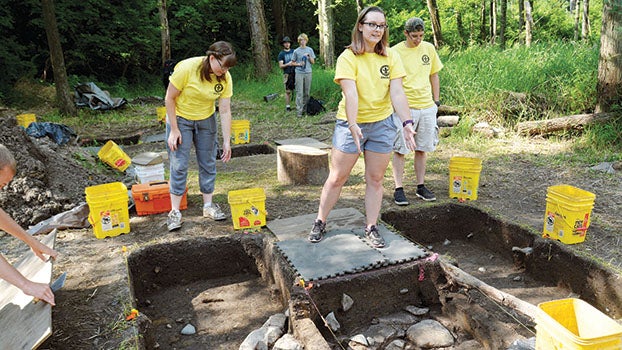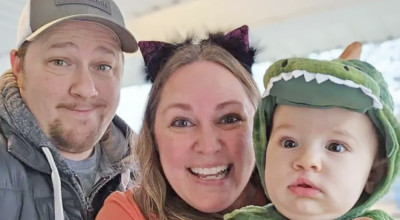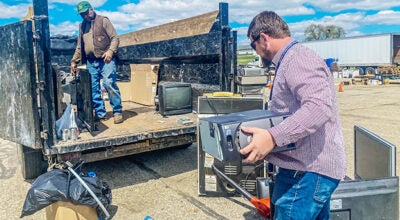Fort St. Joseph Archaeology canceled for 2020
Published 10:54 am Wednesday, May 20, 2020

- Western Michigan University student, Melanie Leary, gestured to a dig site during a previous dig. (Leader file photo)
|
Getting your Trinity Audio player ready...
|
NILES — For 44 years, archaeologists in training have visited Niles to uncover remnants of the city’s rich history. This summer, however, the tradition will not return.
Due to the COVID-19 pandemic, the Fort St. Joseph archaeological dig will not take place this year, according to representatives from the Niles History Center, which partners with Western Michigan University to host the dig and affiliated programs.
WMU, the sponsor of the field school, decided all summer classes will be delivered through distance learning. The archaeological field school hosted in Niles is not easily adapted to this format.
“The field school is an intensive, hands on, face-to-face, immersive learning opportunity like no other university,” said WMU professor and principal investigator Dr. Michael Nassaney. “Students and staff typically live together, eat together and work together as we engage with the community and learn the art and science of archaeology. While I would like nothing more than to run the field school as we have for the past 44 years, this will not be possible.
History Center Director Christina Arseneau expressed disappointment, but said she understands the university’s decision.
“Every year, we look forward to the archaeology season at Fort St. Joseph,” Arseneau said. “The team becomes a part of the community as they uncover the history of this significant fort. But the safety of our community and visiting students is most important. We look forward to the return of a safe season of archaeology in 2021.”
Restrictions on programming mean that the typical lectures and summer camps offered would be difficult, if not impossible to host, organizers said. These events, typically hosted at the Niles District Library, and the annual Fort St. Joseph Open House, which typically welcomes large crowds to view the dig’s findings in August, are also canceled.
However, there will still be opportunities to learn about this important element of Niles history. The Niles History Center will offer remote options for learning about fort history during the summer. Curation and cataloging of the more than 300,000 artifacts recovered in previous years will continue.
The Fort St. Joseph Archaeological Project will also offer events through its website and social media outlets.
Field school students at WMU will have the option to enroll in a course on the ethnoarchaeology of COVID-10, taught by Nassaney. The goal is to use the tools of archaeology to learn more about how society has changed as a result of the global pandemic. Through observation and analysis, students will gain a deeper understanding of the impact of the virus on the materiality of daily lives.
To stay in touch with the History Center and the Fort St. Joseph Archaeological Project, visit nileshistorycenter.org, or wmich.deu/fortstjoseph






